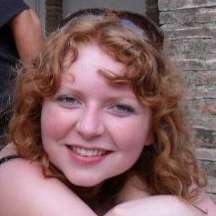Raucous cheering and stamping accompanied Eric Whitacre’s entrance and he looked every bit the part of rock star as he charismatically took to the mic to introduce this evening’s concert. Never before, he told us, had he been to a choral concert that made him seriously consider stagediving. In recent years Whitacre has been something of a poster boy for choral music, helping to transform the image of the genre. Working in a similar vein to Tavener, Pärt and Górecki, Whitacre prefers to set secular texts and his ‘virtual choir’ projects have enabled him to reach a far wider audience.
Opening with Leonard Bernstein’s Warm-Up: A round for chorus (1970), Whitacre conducted a ‘super choir’ of 56 vocalists from the Eric Whitacre Singers and BBC Singers. This jazzy, light-hearted warm up was followed immediately by Alleluia (2011), providing a dramatic contrast in atmosphere. Written for The Choir of Sidney Sussex College, Cambridge, where Whitacre is currently Composer in Residence, the nine-minute piece makes use of a single word – ‘Alleluia’. The highlight was without doubt a dazzling soprano solo that sent shivers down the spine.
Whitacre’s Leonardo Dreams of His Flying Machine (2001) was equally as effective. Opening in the style of Palestrina and Monteverdi, it isn’t long before Whitacre’s trademark dissonances begin to appear, followed by innovative use of percussion meant to evoke the flying machine. The singers, too, contribute to the sounds of flying using unusual but highly effective vocal techniques. With perfect diction and intonation, this was an utterly faultless performance by the choir. Watching Whitacre’s exuberant conducting, it is hard not to get caught up in his enthusiasm.
Edwin London’s Bach Again (1974), which takes a Bach chorale (tonight ‘Come, sweet death’, as chosen by the choir) and then stretches it out so that lines overlap, increasing the tension of the original, was cleverly accompanied by actions which provided a visual metaphor for what was happening aurally. This allowed the audience to see where each individual member of the choir was in the chorale, and certainly added to my enjoyment because I could understand what was going on as well as enjoying the beautiful sound.
The world première of Higher, Faster, Stronger, commissioned by the BBC for this Prom, followed next. Inspired by and taking its name from the Olympic motto, this timing of this première to coincide with the Paralympic opening ceremony was ideal. In this piece, the choir is divided into three choirs: Higher choir, Faster choir and Stronger choir, arranged on stage as an Olympic podium. In ‘the most vitruosic’ piece Whitacre has ever written, Whitacre puts the choirs through their paces as they race for five minutes. Soloist Grace Davidson and percussion group ensemblebash were fantastic and this piece was a pleasure to witness.
Essex-born Imogen Heap took to the stage for another world première: The Listening Chair (2012). The idea behind this piece came from interactions with people in six different locations around the world, all of who sat in a chair and answered the question ‘What is the song that still needs to be written?’ There was no common answer. And so Heap came up with a song where some of the words can be changed by the singer to fit their own experiences. Every minute of the song (which currently lasts five minutes) represents seven years of Heap’s life. Over her lifetime she will add to the song, but it will always end with the question ‘Who am I now?’ – a question the audience is asked to echo.
Grammy award-winning operatic soprano Hila Plitmann is well respected on the international music scene. Tonight’s performance of three sprirtuals, arranged by Moses Hogan, left me disappointed, however. Although Plitmann has an impressively high tessitura, the sound lacked depth lower in the range where often it was impossible to make out the words even though she was amplified. Plitmann did engage more with the audience in a prepared encore of ‘Forever Young’ from John Corigliano’s song cycle Mr Tambourine Man, yet somehow it still left me cold.
Whitacre’s Cloudburst (1992) and Sleep (1999-2000) rounded the evening off nicely. Inspired by a dramatic thunderstorm, Cloudburst was Whitacre’s breakthrough piece and more than lived up to my expectations. In our second opportunity to participate, Whitacre involved the entire audience in the final section, where, along with the choir our finger snapping created the sound of rain after an almighty thunderclap.


